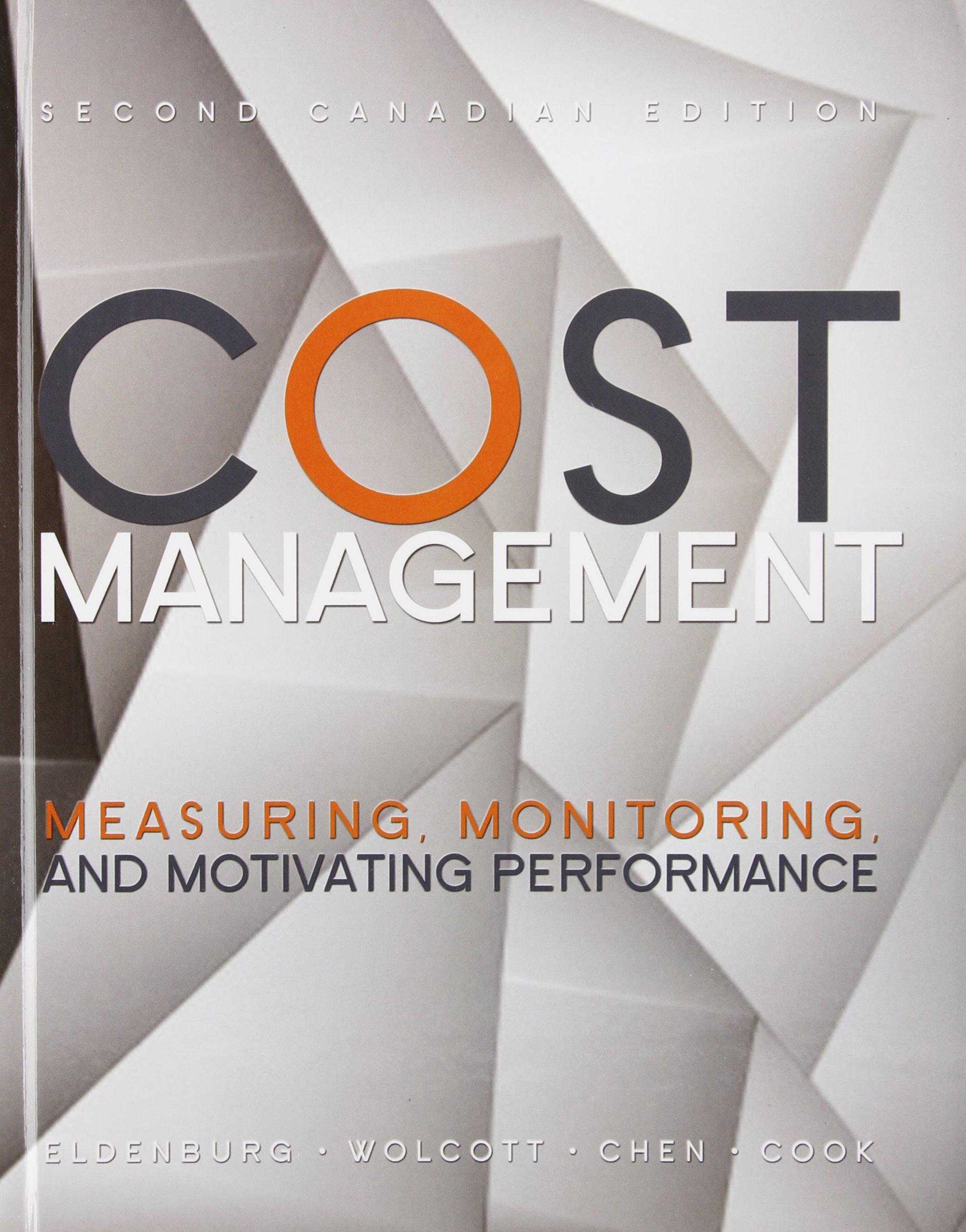The Gleason Company, a Canadian division of a large international company, has prepared estimated costs for next
Question:
Building and grounds ........................$ 41,010
Factory administration .........................78,270
Cafeteria-operating loss ........................4,920
Machining ......................................104,100
Assembly .......................................146,700
Total ...........................................$375,000
Management would like to know the estimated total allocated product cost per unit. This cost will be used as a benchmark for future-period operations. The following information is available and can be used as possible allocation bases. The difference between direct labour hours and total labour hours represents hours of supervisory labour or labour hours that are used indirectly for manufacturing. The cost of these hours in machining and assembly is part of manufacturing overhead:
.png)
REQUIRED
A. Allocate the building and grounds costs to all other departments using square metres as the allocation base. Add the allocated costs to direct costs to arrive at the total costs assigned to each department.
B. Explain whether each remaining department is a support department or an operating department.
C. Select a reasonable allocation base for the costs of each support department. Justify your choices.
D. Compute allocated overhead costs for each operating department. Given the allocation bases you selected in Part C, allocate support department costs to each operating department using the step-down method. Then calculate an overhead rate per direct labour hour for each operating department.
E. Calculate overhead rates for the operating departments, assuming that Gleason uses an average, plantwide factory overhead allocation rate based on direct labour hours. That is, aggregate the support department overhead costs into one cost pool and use direct labour hours as the allocation base to determine the overhead rate per direct labour hour.
F. What causes the difference between the rates you calculated in Parts D and E?
G. Assume that factory administration costs are allocated based on total labour hours and that the total allocated cost is used to charge other departments for administrative services. List one advantage and one disadvantage of this charge system.
H. Suppose you are the manager of the machining department at Gleason. You can outsource some of your department's work. Outsourcing would reduce direct labour hours and, therefore, reduce the amount of overhead allocated to your department. What factors should you consider in deciding whether to outsource?
I. Now suppose you are the director of finance for Gleason. The manager of the machining department has decided to outsource some tasks. When you analyze the current-period results, you notice that while direct labour costs decreased in machining, outsourcing costs are slightly higher this period than the prior period's direct labour costs. When you ask the manager about these costs, he replies that the outsourcing does cost more than using direct labour, but because the amount of overhead for the department decreases, this solution is more profitable. What happened to the overhead that is no longer allocated to machining? Is the manager'sdecision beneficial to Gleason Company as a whole? Explain.
Step by Step Answer:

Cost Management Measuring Monitoring And Motivating Performance
ISBN: 9781118168875
2nd Canadian Edition
Authors: Leslie G. Eldenburg, Susan Wolcott, Liang Hsuan Chen, Gail Cook





